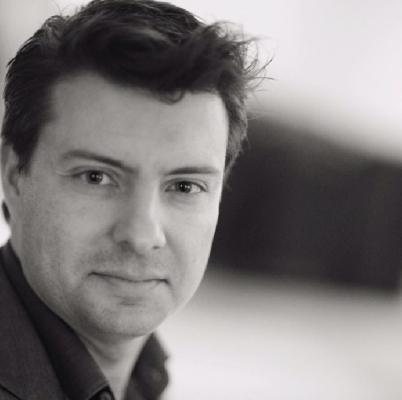
Jake Jones
IIRPS VU Alumni, IRI Resident Country Director for Jordan
Jake, can you tell us a bit about yourself? What do you do now and how did you end up in Vilnius?
Coming from small town Oregon (only 500 people) I never had an opportunity to travel much and after University I worked three tours in the US Peace Corps before settling in Azerbaijan. I first visited Vilnius in 2008 on a youth exchange of Azerbaijani youth, spending a week at the Seimas, meeting with journalists and think-tank, and having roundtables with youth groups and political parties. I had not spent much time in Europe at that point outside of a month at Oxford and Vilnius was different than anywhere I had been. I loved the atmosphere and promised myself (a literal promise) that as soon as I could get a job there I would go. It took a few years but I made it.
You‘ve travelled quite a lot on your job – Baku, Vilnius, now Amman. Can you compare these experiences?
Not easily. Each place had a unique feel and came at the right time in my life and career (rather I came to them). In all three locations my job has involved sustained engagement with average citizens and how representative institutions work with them, if at all. I have been lucky to spend significant time in each place to get to know the nuance of local political culture, while also seeing international commonalities through short term work in Moldova, Ukraine, Kyrgyz Republic, or Mongolia.
Given that you work in Jordan now, do you feel your Eastern European and Russian studies degree is still relevant?
Absolutely. First, the skills of critical thinking, research, analytical writing, presentation and others gained at University are relevant anywhere. Second, while at IIRPS I was particularly interested in Russian foreign policy in the Middle East and enjoyed that course very much, not guessing I would later be living in the region. Russia is a state with foreign policy which extends all over and its role in the Middle East particularly is pivotal historically, and is still heavily engaged. Just look at Syria. Finally, my work for the past decade has been with political institutions. Eastern European and Russian Studies highlighted institutions in transition and how various models performed over time. These recent case studies built a firmer foundation on which to build my work.
What advice would you give to the current students of the Eastern European and Russian studies programme?
The aspect of the University I enjoyed the most was the practical nature of the discussion. I would strongly recommend spending time talking with the professors and engaging in dialogue when possible. IIRPS is unique because the lecturers have strong academic background but also real-world practical experience. Many of my lecturers were actively engaged in Lithuanian foreign policy in some way during the time I was a student. This made for deeply informed, well-rounded portrayals of the subjects of study. Looking back, I can’t state strongly enough how rare this is, and should be taken advantage of by students.







